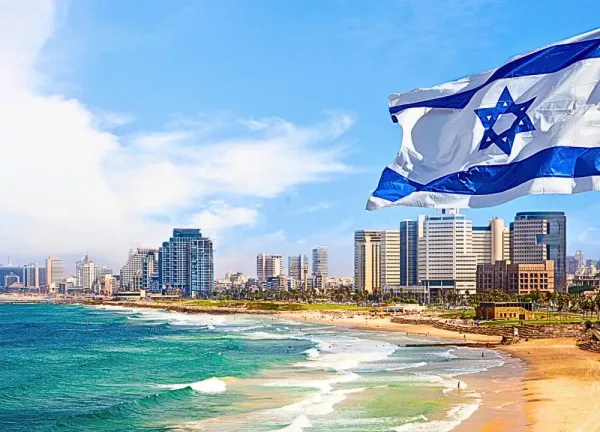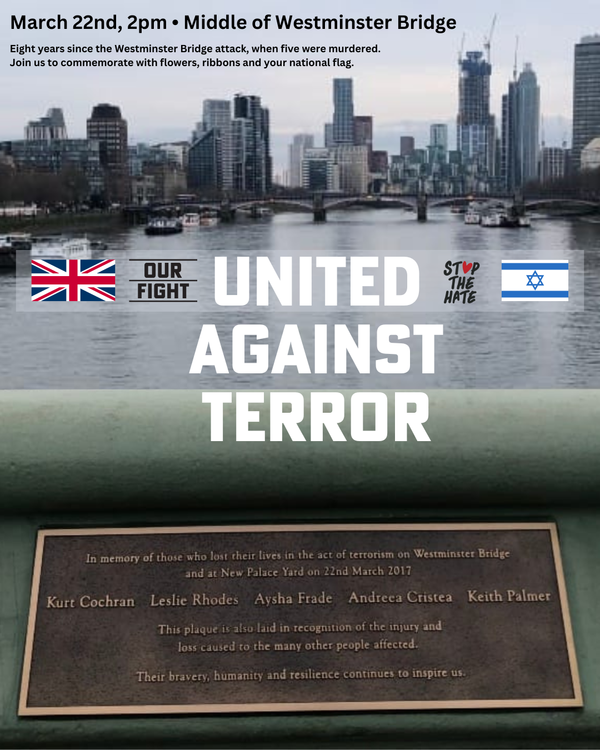Holocaust Memorial Day | Kindertransport Memorial | 2025-01-27
Here we reproduce two of the stories told at our Holocaust Memorial Day event in London, organised with Stop the Hate.
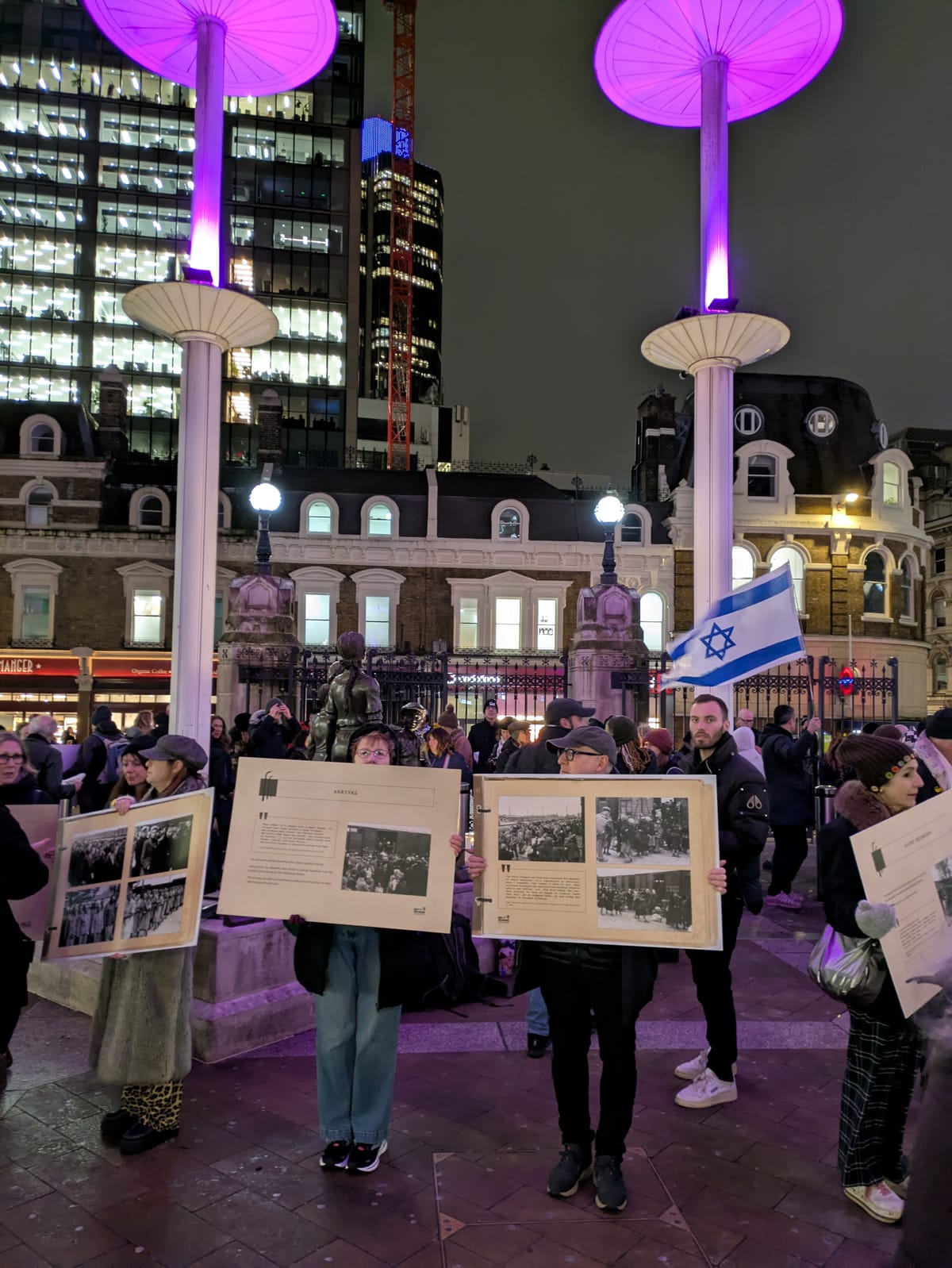
On this year's Holocaust Memorial Day, Monday January 27th, 2025, a number of us from the campaign groups Our Fight and Stop the Hate assembled at the Kindertransport Memorial outside London's Liverpool Street Station.
In any year the anniversary would be a sombre day of reflection and most people would attend a formal memorial at a local Town Hall, a memorial garden or a synagogue to honour those murdered during the Holocaust. But this year the mood was different. The past no longer seemed to be the past; the past was starting to look very much like the present.
On this anniversary day, news broadcasters 'forgot' to mention Jews and organisations demanded that Gaza be mentioned in the commemorations. In all parts of public life, from speeches to short films, from tweets to posters, the Holocaust was being rewritten as nothing more than a child's fable about what might happen if hurtful words aren't addressed.
In short, the Holocaust was being 'dejudified', and with it any lesson it may have, as to where anti-Semitism can lead.
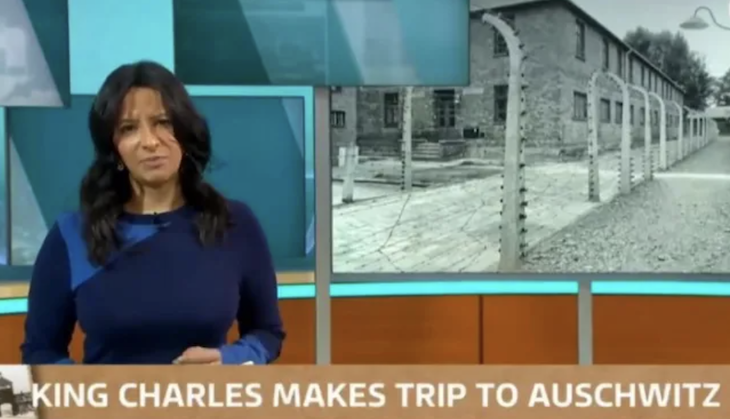
But the more that we stand in solidarity with Jews, the more we learn that no ceremony, vigil, or memorial will be without hope, without respect, without dignity. For this occasion we set up a display of the Yad Vashem exhibition The Auschwitz Album to engage passers-by, and then heard stories from descendants of Holocaust victims about their ancestors. Photos were shared. Candles were lit. The Mourners Kaddish was said, and then Hatikvah sung—accompanied by the haunting but moving recording of proud survivors of Bergen-Belsen.
For this group the memory of the Holocaust was still fresh. How could it not be? The stories we heard were of ancestors only three generations past; ancestors who had perished, sometimes as a result of being turned in by neighbours.
Below we reproduce two of these stories. And if you feel as we do that the lesson of the Holocaust is that anti-Semitism leads to civilisation's descent—a descent into 'civilised barbarism'—then you must join our symposium on Sunday February 9th, in North London and online, and help to begin the process of remaking the promise: Never Again.

Diana's Story
Diana quote's from her father's book Family:
I know little about my dad’s Friedland family. Before the war, they lived in a small house in central Odessa. My dad volunteered for the front in July 1941, while his parents stayed behind, unable or unwilling to evacuate. When the city was occupied, the neighbors handed them over to the Germans, much like the ‘Mother’s letter’ from Grossman’s Life and Fate.
My grandfather and grandmother ended up in the Slobodsky ghetto in Odessa and died there, around October 23, 1941, or among the 25,000 Jews, were burned alive in artillery warehouses along Lustdorf Road. In May 2000, a granite block with the inscription ‘Shalom’ was erected at the old 2nd Jewish Odessa cemetery in memory of them.
After the war, Yuliy Friedland returned to Odessa to his home, where people who lived in his house recognised him... Of all the boys in the class where my parents studied, only three survived. One, Marik Torban, they later met. In 1990, my mom, Sofya Lebenzon, filled out a testimony sheet at Yad Vashem about the fate of Yuliy Friedland’s parents.
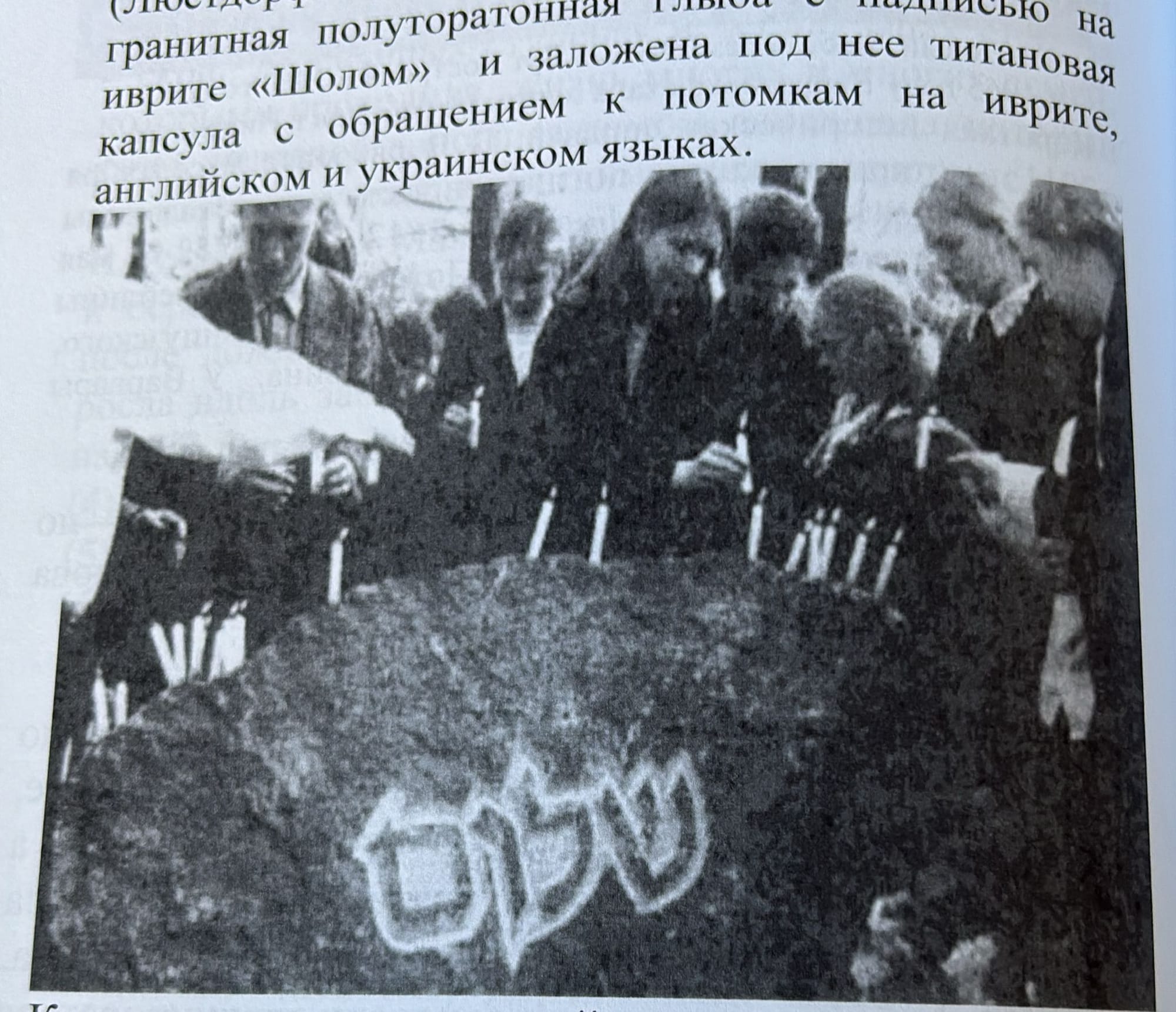
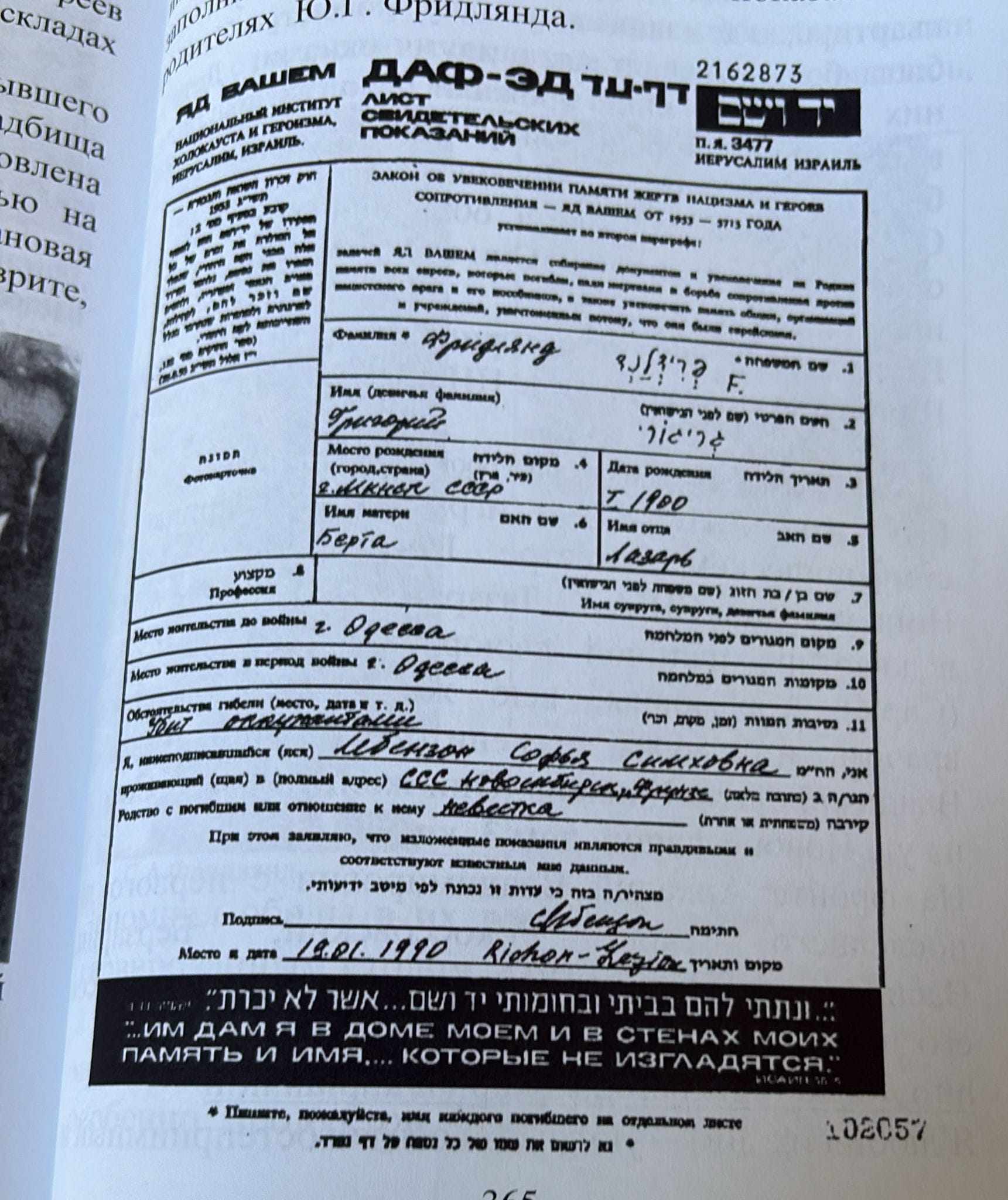
Simon's Story
Simon Garfield writes:
I want to show people this Jewish prayer book called a Siddur that my great grandparents—Chaim Garfunkel & his wife, Sabine, nee Selinger, from Krakow in Poland—gave to my father Siegbert (Bert) Garfunkel (anglicised to Garfield).
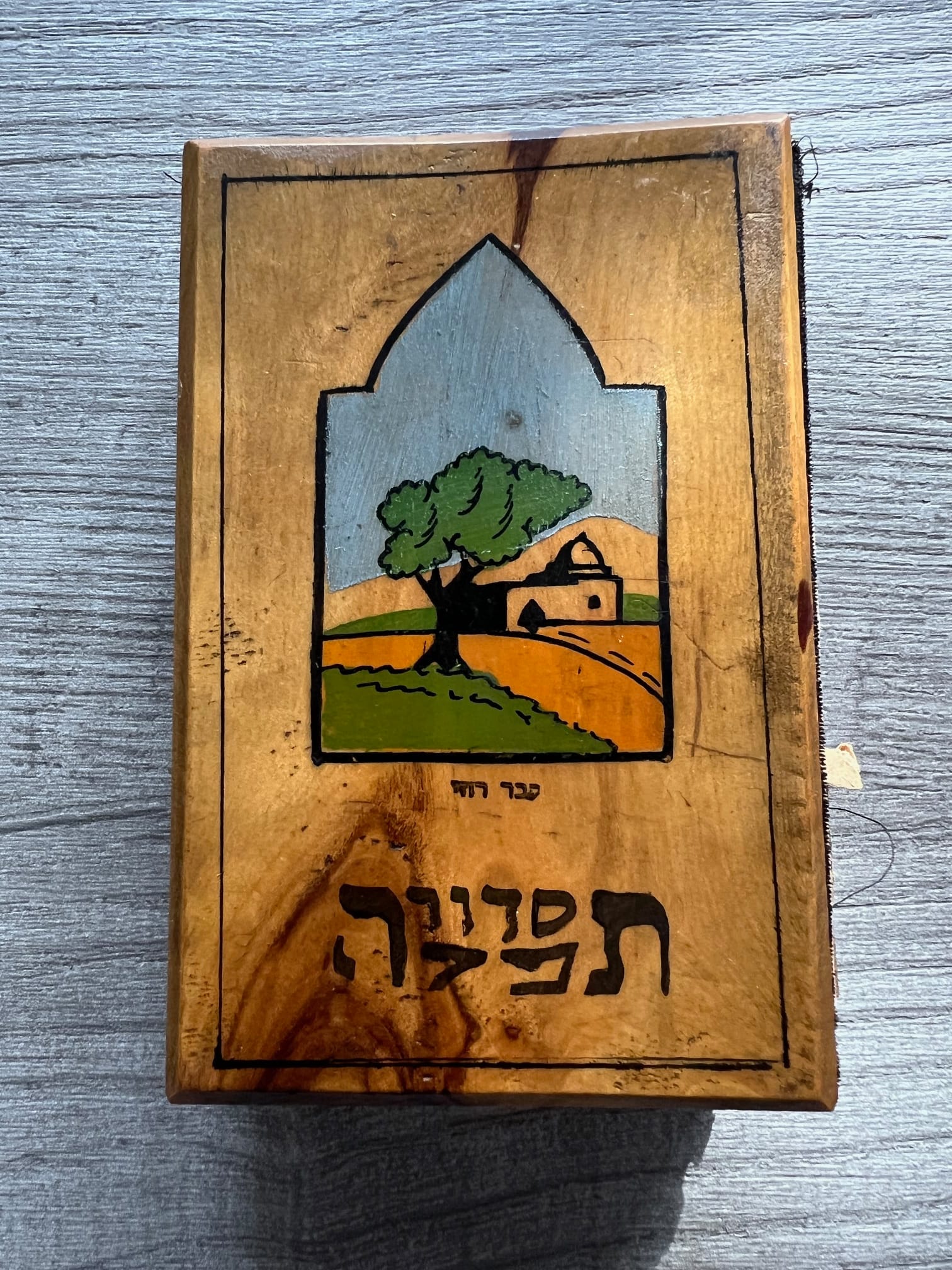
My father was a Jewish immigrant to the UK, having to flee Nazi persecution in Germany in 1936. His father Max (who had a fur factory, which was later to be taken over by the Nazi’s), managed to fool a Nazi spy who worked for him, over a poker game one evening. He got his family out first by sending them through Switzerland. Max joined them later by pretending he was visiting a disgruntled client, also in Switzerland.
The Prayer book I am showing was sent to my father in 1939 from his Grandparents in Krakow on the occasion of his Bar mitzvah. His grandparents, my great grandparents, stayed in Krakow and he never heard from them again as they were taken by the Nazis and then sent to Belzec Concentration camp. They were gassed by the Nazis, murdered along with nearly 350,000 other Jews there. The prayer book reads (translated from German/Yiddish):
"To Bert, from your loving grandparents in Krakow."
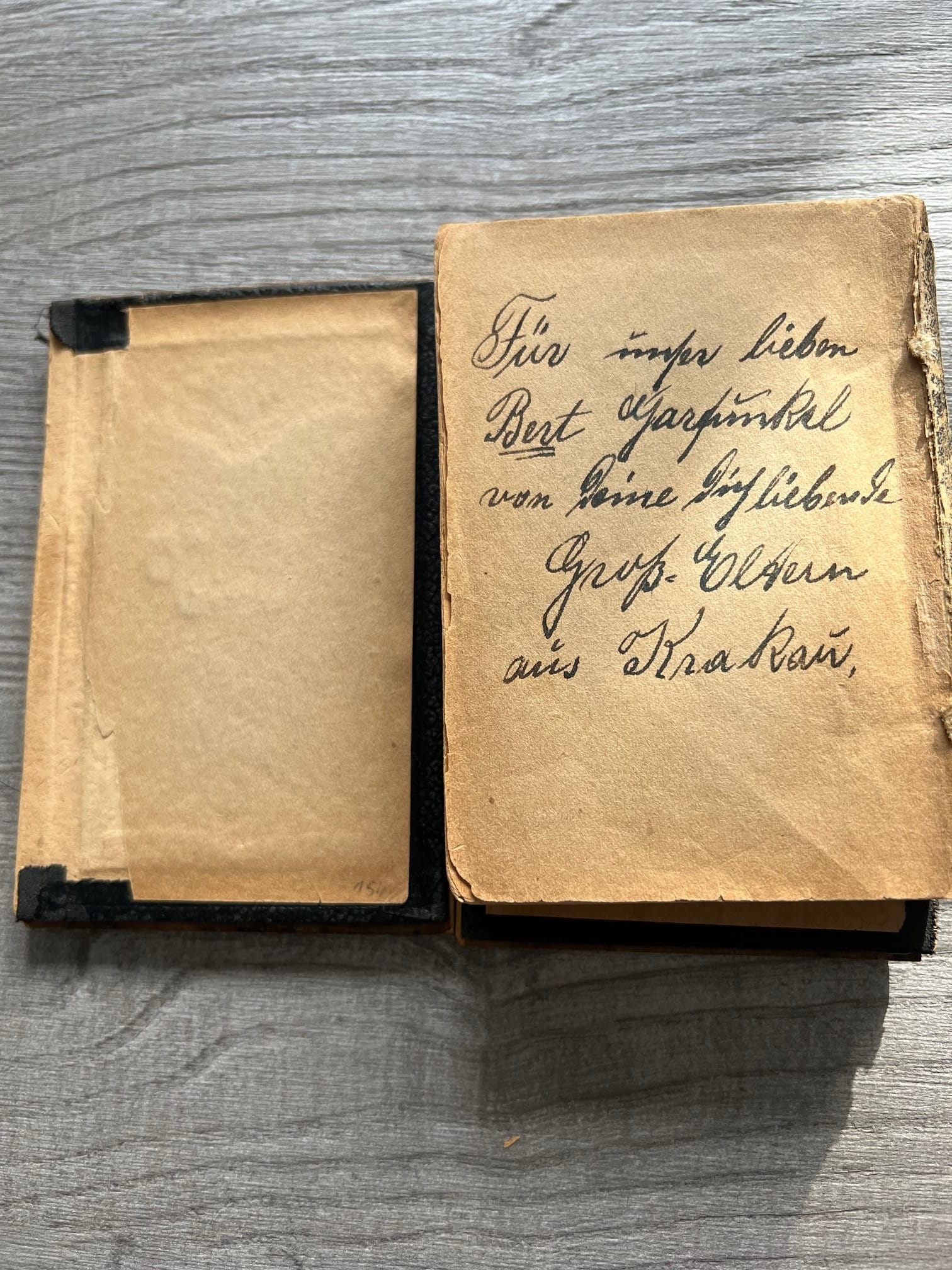
I am showing this in their memory and also that of all my other relatives who were murdered in this despicable act of genocide, a true Holocaust, where currently antisemites around the world seek to recreate the same atrocities.
It is also in memory of my mentally handicapped cousin, Hans Freimann, who was also taken by The Nazis and euthanised!
My wife Mel, and I, stand together to also remember her murdered families from Poland, Ukraine and Russia.
May their memories be forever a blessing.

